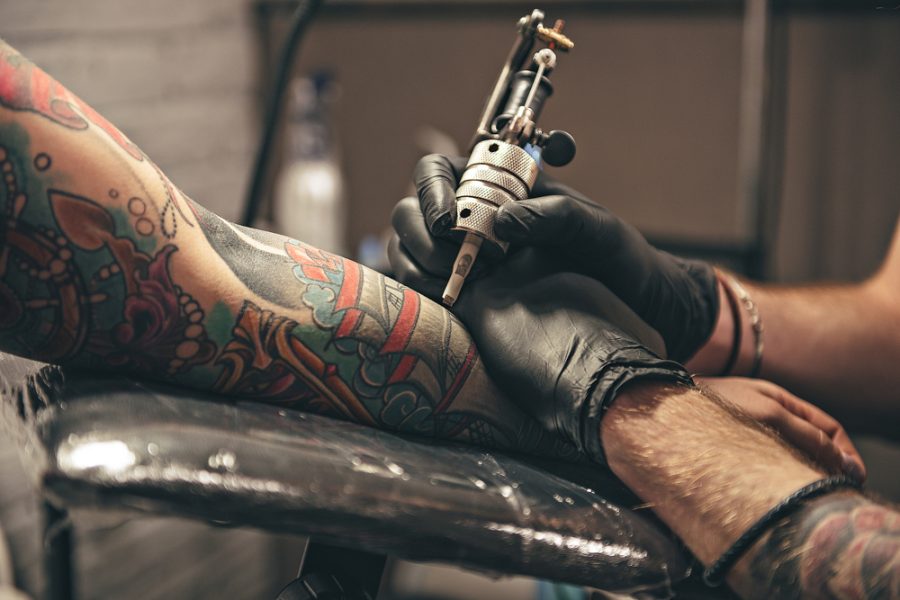GV students discuss their tattoos
Nov 29, 2021
Many new college students are living on their own for the first time. Away from their parents, college freshmen are newly eighteen and have the freedom to make their own decisions.
With this power, many choose to do things their parents wouldn’t approve of, or even things openly discouraged at home. One common choice that students make is to get a tattoo. With a plethora of options near campus, students don’t have to travel too far for their artwork.
“I got the tattoo because I went to Catholic school my whole life and could not have any visible piercings or tattoos, even though I’ve always wanted to,” said Grand Valley State University junior Grace Wangler. “So, going to college was very freeing, in that sense.”
Wangler got her first tattoo two months after coming to college, the same month that she turned 18. She went to Wealthy Street Tattoo and said she had an amazing experience, but decided not to tell her family about it.
“I did not tell my parents because I made the decision pretty quickly and just didn’t feel it was necessary to tell them,” Wangler said.
There are many reasons why parents worry about their children getting tattoos. Personal distaste is one of the most common reasons. GVSU junior Madison Hites said some parents are against their children getting tattoos because they personally don’t like the look of them.
Hites got her first tattoo two years after she moved away from home to go to college. Though she describes her first tattoo as her pride and joy, Hites said she didn’t tell her parents about getting it.
“(My parents) completely disapproved,” Hites said. “My dad got a tattoo and my mom almost divorced him over it. My dad said it was the biggest mistake of his 40s.”
Another reason that parents disapprove of tattoos is that they are worried that their children will be discriminated against when trying to find a job,
“My grandparents know, but they weren’t happy about it,” said GVSU student Bren Frick. “They were worried about my career prospects, even though my two small arm tattoos will not cost me a future job. The world is changing.”
Frick got two tattoos within a year of moving out and said that both mean a lot to her. As an early education major, Frick said she isn’t worried that her tattoos will impact her career. In this day and age, most jobs don’t care about tattoos as long as they are not offensive, Frick said.
Like Frick’s tattoos, many tattoos hold meaning for people that get them. They may have strong connections to the art and what it represents for them.
“I got this tattoo of butterflies on my right arm because it symbolizes everything I’ve gone through with my Crohn’s Disease and sits right next to the vein that’s been used for all kinds of therapies I’ve been on for almost nine years,” said freshman Sophia Brya. “I chose butterflies because phlebotomists always have to use the butterfly needles on me because of my fragile veins and because I feel like butterflies watch over me.”
Byra got her butterflies within a few months of moving in. Her parents knew about it and supported her in regards to the tattoo. Byra said the butterflies were her second tattoo, the first one she got at 15 with her brother and parents.
“I’ve decided to get tattoos because they represent a memory or are a reminder of people or events that are a part of my life,” said GVSU sophomore Peyton Murney.
Murney got her first tattoo three months after moving in on campus. She has four tattoos now, but said her parents only know about the first one. She’s gone to both Wicked Ways and Screaming Needles for her ink.
While there are studies that show tattoos will not negatively impact students’ careers, others give contradictory evidence. This is becoming less of a concern for young Americans, as 47% of Millennials and 36% of Generation X have at least one tattoo, compared to only 13% of Baby Boomers. Ultimately, it will depend on the employer’s point of view, location and what the tattoos depict.






















